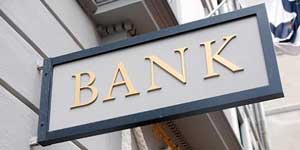For an expat moving abroad the issue of where they keep their money is a number one priority.
Many will find an offshore account which is an offshoot of a well-known British high street bank or building society is their best option.
Others will opt to open an account with a local bank in the country where they are making their new home, but unexpected fees and charges for running the account can throw up some financial surprises.
Many foreign banks will make charges wherever they can, so expats need to look in to the small print to make sure big fees are not incurred for transfers, drawing money and currency exchange.
This is a quick guide to help you through the foreign bank accounts maze.
What’s the difference between a UK and foreign bank account?
The costs of running foreign bank accounts are much higher than those in the UK. Expats will quickly discover that their foreign bank will not be shy about charging for a range of services which an expat may have taken for granted at home.
The charges won’t be that much different, will they?
Sadly, yes. If you think the criticism of the UK banking industry for its mis-selling of products such as Payment Protection Insurance (PPI) is well founded, then wait until you open an account abroad because these issues are commonplace.
Most European banks, for instance, charge a range of fees for simply having an account with them.
Customers are charged for every cheque and cash withdrawal and face quarterly or yearly admin charges. However, unlike UK banks many European banks are open to negotiation on charges, which vary from customer to customer and between banks.
What are my bank account options?
Expats temporarily moving abroad to live and work have ‘non-resident’ accounts with limited services.
Expats moving permanently overseas to retire or work are offered a more flexible ‘resident’ account.
What else should I be aware of?
Do not go overdrawn as the penalties are horrendous, especially in Europe. Don’t write a cheque that might bounce because doing so could lead to serious trouble. Also, post-dating cheques can cause problems.
Will the bank offer a service in English?
As English is an international language, expats will find English-speaking staff in most foreign bank branches and their online banking service will also offer English.
Countries with large British expat communities, such as France and Spain, will also have services catering for English-speakers.
